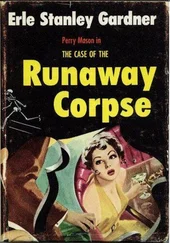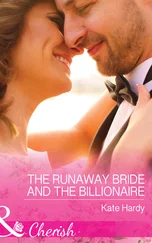John - The Runaway Jury
Здесь есть возможность читать онлайн «John - The Runaway Jury» весь текст электронной книги совершенно бесплатно (целиком полную версию без сокращений). В некоторых случаях можно слушать аудио, скачать через торрент в формате fb2 и присутствует краткое содержание. Жанр: Детектив, на английском языке. Описание произведения, (предисловие) а так же отзывы посетителей доступны на портале библиотеки ЛибКат.
- Название:The Runaway Jury
- Автор:
- Жанр:
- Год:неизвестен
- ISBN:нет данных
- Рейтинг книги:5 / 5. Голосов: 1
-
Избранное:Добавить в избранное
- Отзывы:
-
Ваша оценка:
- 100
- 1
- 2
- 3
- 4
- 5
The Runaway Jury: краткое содержание, описание и аннотация
Предлагаем к чтению аннотацию, описание, краткое содержание или предисловие (зависит от того, что написал сам автор книги «The Runaway Jury»). Если вы не нашли необходимую информацию о книге — напишите в комментариях, мы постараемся отыскать её.
The Runaway Jury — читать онлайн бесплатно полную книгу (весь текст) целиком
Ниже представлен текст книги, разбитый по страницам. Система сохранения места последней прочитанной страницы, позволяет с удобством читать онлайн бесплатно книгу «The Runaway Jury», без необходимости каждый раз заново искать на чём Вы остановились. Поставьте закладку, и сможете в любой момент перейти на страницу, на которой закончили чтение.
Интервал:
Закладка:
The commotion hit thirty minutes later, and Nicholas was in the middle of it. Mrs. Grimes stepped into the hallway and yelled at Chuck, who was sitting at his post, sipping coffee and reading the newspaper. Nicholas heard her call, and rushed from his room. Something was wrong with Herman!
Lou Dell and Willis arrived amid panicked voices, and soon most of the jurors were outside the Grimeses' room, where the door was open and people were swarming. Herman was on the bathroom floor, bent double at the waist, clutching his stomach and in terrible pain. Mrs. Grimes and Chuck crouched over him. Lou Dell ran to the phone and called 911. Nicholas said gravely to Rikki Coleman that it was chest pains, maybe a heart attack. Herman had already had one, six years earlier.
Within minutes, everyone knew Herman was suffering from cardiac arrest.
The paramedics arrived with a stretcher, and Chuck pushed the other jurors farther down the hall. Herman was stabilized and given oxygen. His blood pressure was only slightly above normal. Mrs. Grimes said repeatedly it reminded her of his first heart attack.
They rolled him out and pushed him rapidly down the hall. In the confusion, Nicholas managed to knock over Herman's coffee cup.
The sirens wailed as Herman was sped away. The jurors retreated to their rooms to try and settle their frazzled nerves. Lou Dell called Judge Harkin to tell him Herman had fallen violently ill. The consensus was he'd had another heart attack.
“They're dropping like flies,” she said, then went on to recollect how she'd never lost so many jurors in her eighteen years as the jury madam. Harkin cut her off.
HE REALLY didn't expect her to arrive promptly at seven for coffee and the cash. Just a few hours earlier she'd been smashed and gave no indication of relenting, so how could he expect her to keep this appointment. He ate a long breakfast and read the first of many newspapers. Eight o'clock came and went. He moved to a better table near the window so he could watch the people on the sidewalk hustle by.
At nine, Swanson called her apartment and managed to pick another fight with the same roommate. No, she was not there, had not been there all night, and maybe she'd moved anyway.
This is someone's daughter, he told himself, living from loft to loft, day to day, scrounging for food and enough money to stay alive and buy the next round of chemicals. Did her parents know what she was doing?
He had plenty of time to consider these matters. At ten, he ordered dry toast because the waiter was staring now, obviously irritated that Swanson had evidently camped out for the day.
FUELED BY RUMORS that were apparently well founded, Pynex's common opened strong. After closing Friday at seventy-three, it jumped to seventy-six at the opening bell and was at seventy-eight within minutes. There was good news out of Biloxi, though no one seemed to know the source. All tobacco stocks rose quickly in early, heavy trading.
JUDGE HARKIN didn't appear until almost nine-thirty, and when he stepped to the bench he noted, without surprise, that his courtroom was packed. He'd just finished a heated argument with Rohr and Cable, the latter of whom wanted a mistrial because another juror had been removed. There were insufficient grounds for a mistrial. Harkin had done his homework. He'd even found an old case allowing eleven jurors to decide a civil case. Nine votes had been required, but the jury's verdict had been upheld by the Supreme Court.
As expected, news of Herman's cardiac arrest spread quickly among the many watching the trial. The jury consultants hired by the defense quietly declared it a major victory for their side because Herman was obviously pro-plaintiff. The jury consultants hired by the plaintiff assured Rohr and company that Herman's removal was a major blow to the defense because Herman was obviously pro-tobacco. All jury experts claimed to welcome the addition of Shine Royce, though most had difficulty with their reasoning.
Fitch just sat in stunned amazement. How in hell do you give someone a heart attack? Was Marlee cold-blooded enough to poison a blind man? Thank God she was on his side.
The door opened. The jurors filed in. Everyone watched to make sure Herman was in fact not among them. His seat was empty.
Judge Harkin had talked to a doctor at the hospital, and he began by telling the jurors that Herman appeared to be responding well, that perhaps it was not as serious as initially thought. The jurors, especially Nicholas, were mightily relieved. Shine Royce became juror number five, and took Herman's old seat on the front row between Phillip Savelle and Angel Weese.
Shine was right proud of himself.
When all was settled and still, His Honor instructed Wendall Rohr to begin his final summation. Keep it under an hour, he warned. Rohr, wearing his favorite gaudy jacket but with a starched shirt and clean bow tie, began softly by apologizing for the length of the trial, and thanking them for being such a wonderful jury. With the friendly remarks behind him, he launched into a vicious description of “. . . the deadliest consumer product ever manufactured. The cigarette. It kills four hundred thousand Americans each year, ten times more than illegal drugs. No other product comes close.”
He hit the high points of the testimony of Drs. Fricke, Bronsky, and Kilvan, and he did so without belaboring what they'd said. He reminded them of Lawrence Krigler, a man who'd worked in the industry and knew its dirty secrets. He spent ten minutes talking casually about Leon Robilio, the voiceless one who'd worked for twenty years promoting tobacco, then realized how corrupt the industry was.
Rohr hit his stride when he got around to the kids. For Big Tobacco to survive, it must hook teenagers and ensure the next generation will buy its products. As if he'd been listening in the jury room, Rohr asked the jurors to ask themselves how old they'd been when they started smoking.
Three thousand kids a day pick up the habit. A third of these will eventually die from it. What else had to be said? Wasn't it time to force these rich corporations to stand behind their products? Time to get their attention? Time to make them leave our children alone? Time to make them pay for the damages caused by their products?
He turned nasty when he dwelt on nicotine and Big Tobacco's stubborn insistence that it is not addictive. Former drug addicts had testified that it was easier to quit marijuana and cocaine than cigarettes. He got even meaner when he mentioned Jankle and his abuse theory.
Then he blinked once and was a different person. He talked about his client, Mrs. Celeste Wood, a fine wife, mother, friend, a real victim of the tobacco industry. He talked about her husband, the deceased Mr. Jacob Wood, who'd gotten hooked on Bristols, the star of the Pynex product line, and tried to kick the habit for twenty years. He left behind children and grandchildren. Dead at the age of fifty-one because he'd used a legally manufactured product precisely in the manner in which it was supposed to be used.
He stepped to a white marker board on a tripod and did some quick math. The monetary value of Jacob Wood's life was, say, a million dollars. He added in some other damages and the total became two million. These were the actual damages, monetary amounts the family was entitled to because of Jacob's death.
But the case wasn't about actual damages. Rohr delivered a mini-lecture on punitive damages and their role in keeping corporate America in line. How do you punish a company that has eight hundred million dollars in cash?
You get the company's attention.
Rohr was careful not to suggest a figure, though legally he could have. He simply left $800,000,000 CASH in bold print on the board as he returned to the lectern and finished his remarks. He thanked the jury again, and sat down. Forty-eight minutes.
Читать дальшеИнтервал:
Закладка:
Похожие книги на «The Runaway Jury»
Представляем Вашему вниманию похожие книги на «The Runaway Jury» списком для выбора. Мы отобрали схожую по названию и смыслу литературу в надежде предоставить читателям больше вариантов отыскать новые, интересные, ещё непрочитанные произведения.
Обсуждение, отзывы о книге «The Runaway Jury» и просто собственные мнения читателей. Оставьте ваши комментарии, напишите, что Вы думаете о произведении, его смысле или главных героях. Укажите что конкретно понравилось, а что нет, и почему Вы так считаете.












